|
| | Mathison Museum of Natural History |  |
|
+15Caracal widukind lucky luke Megaptera rogerpgvg Jill sunny pipsxlch Saarlooswolfhound landrover Kikimalou Taos Duck-Anch-Amun Shanti Saien 19 posters | |
| Author | Message |
|---|
bmathison1972
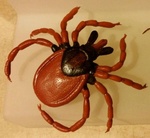
Country/State : Salt Lake City, UT
Age : 52
Joined : 2010-04-12
Posts : 6710
 |  Subject: Re: Mathison Museum of Natural History Subject: Re: Mathison Museum of Natural History  Tue Oct 24, 2023 5:44 am Tue Oct 24, 2023 5:44 am | |
| Species: Alligator mississippiensis (Daudin, 1802) Common name(s): American alligator About the Figure: Manufacturer: Safari Ltd. Series: Wild Safari Wildlife Year of Production: 2017 (1997) Size/Scale: Measured along midline, body length approximately 20.5 cm for an average scale of 1:13-1:22 depending on the sex Frequency of species in toy/figure form (at time of posting): Very common Miscellaneous Notes: My figure is a 2017 repaint of a model that originally came out in 1997. When I first started the non-arthropod part of my collection, this was the alligator I chose. However, I later switched to the 2019 version by Papo after reading the Blog review of it by forum member Lanthanotus. After reassessing that decision earlier this year, I put the Papo gator in the trade/donation bin and this Safari figure went back onto the shelves. Given how popular and familiar the American alligator is, it's surprising so few companies have been able to accurately capture it in terms of head shape, sculpt, and color (most alligator figures are an unrealistic shade of green). Today's figure by Safari is one of the better sculpts, and the updated color scheme makes it even better. The model also comes in a leucostic version. The Safari Wild Wildlife (originally Wildlife Wonders) alligator is often regarded as the best figure of this species, but it's rather large compared to most 'standard-sized' figures. About the Animal: Geographic distribution: Southeastern United States Habitat: Marshes, swamps, lakes, ponds, lagoons, irrigation ditches, canals, swimming pools Diet: Generalist carnivore; prey depends on the size of the alligator and can include invertebrates, fish, birds, turtles, snakes, amphibians, and mammals IUCN Status (at time of posting): Least Concern Miscellaneous Notes: Alligator mississippiensis is one of the few reptiles that exhibits parental care. Females lay clutches of 20-50 eggs, usually in a mat of vegetation. The vegetation heats as it decays, keeping the eggs warm. The temperature at which the eggs incubate determines their sex; temperatures below 31.5°C or above 34.5°C usually produce females while temperatures between 32.5°C and 33.5°C usually produce males. The incubation period is approximately 65 days. The female alligator doesn’t sit directly on the nest, but remains in close proximity to keep away raccoons and other predators and scavengers. After hatching, baby alligators call for their mother, who gently carries them to water in her mouth. Growing young usually spend about the first year with their mothers, after which they become independent. [You must be registered and logged in to see this image.] |
|   | | Caracal
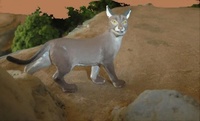
Country/State : France
Age : 65
Joined : 2018-10-24
Posts : 7252
 | |   | | bmathison1972

Country/State : Salt Lake City, UT
Age : 52
Joined : 2010-04-12
Posts : 6710
 |  Subject: Re: Mathison Museum of Natural History Subject: Re: Mathison Museum of Natural History  Wed Oct 25, 2023 6:51 am Wed Oct 25, 2023 6:51 am | |
| Species: Odontolabis spectabilis Boileau, 1902 About the Figure: Manufacturer: Sega Series: Mushi King - small series, standard Year of Production: unknown Size/Scale: Body length (including mandibles) approximately 5.0 cm for a scale of 1:1.5 for a large major male Frequency of species in toy/figure form (at time of posting): Very rare Miscellaneous Notes: This is the fourth species of Odontolabis we've seen in the Museum. The only other figure of this species I am aware of is a boxed figure by DeAgostini. The Sega 'small standard series' were 10 sets of 10 figures each, for a total of 100 figures representing 65-75 species of Lucanidae and dynastine Scarabaeidae. The dates of release are currently unknown to me (c. 2008). The figures were produced in conjunction with Bandai and came with Pokemon-style playing cards. At the time of this writing, I think I have all but two of the species. For a review of the sets, please see the overview by forum member Beetle guy here. This figure has yellow painted at the base of the legs, but from what I can tell, the species should have solid black legs. About the Animal: Geographic distribution: Sumatra Habitat: Broadleaf rainforest Diet: Larvae feed in rotting wood; adults feed on tree sap IUCN Status (at time of posting): Not Evaluated Miscellaneous Notes: Like other members of Odontolabis, I had difficulty researching biological information on this species and some of the information above is typical for other members of the genus. [You must be registered and logged in to see this image.] |
|   | | Caracal

Country/State : France
Age : 65
Joined : 2018-10-24
Posts : 7252
 | |   | | widukind
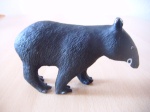
Country/State : Germany
Age : 48
Joined : 2010-12-30
Posts : 45745
 |  Subject: Re: Mathison Museum of Natural History Subject: Re: Mathison Museum of Natural History  Wed Oct 25, 2023 11:14 am Wed Oct 25, 2023 11:14 am | |
| |
|   | | bmathison1972

Country/State : Salt Lake City, UT
Age : 52
Joined : 2010-04-12
Posts : 6710
 |  Subject: Re: Mathison Museum of Natural History Subject: Re: Mathison Museum of Natural History  Thu Oct 26, 2023 6:46 am Thu Oct 26, 2023 6:46 am | |
| Species: Leiurus quinquestriatus (Hemprich & Ehrenberg, 1829) Common name(s): deathstalker; Palestine yellow scorpion; Omdurman scorpion; Naqab desert scorpion About the Figure: Manufacturer: Safari Ltd. Series: Sahara Desert Animals TOOB Year of Production: 2022 Size/Scale: Body length approximately 5.8 cm for a scale of 1:1.4-1:1.9 (slightly under 1:2 for a large specimen) Frequency of species in toy/figure form (at time of posting): Rare Miscellaneous Notes: This is the second time we've seen L. quinquestriatus in the Museum. The eye arrangement of this figure is interesting. I cannot tell if the two prominent black eyes are the median eyes or frontal eyes, as there appears to be a pair of smaller eyes behind them (which would be the median eyes, making the larger front ones lateral eyes). While not 100% accurate, that is still an incredible point of detail for a figure of this small size! About the Animal: Geographic distribution: North Africa, Arabian Peninsula, Middle East, Asia Minor to Central Asia (Kazakhstan and western India) Habitat: Deserts, scrubland Diet: Small insects, arachnids, and other terrestrial invertebrates IUCN Status (at time of posting): Not Evaluated Miscellaneous Notes: There are several neurotoxins in the venom of L. quinquestriatus, including chlorotoxin, charybdotoxin, scyllatoxin, and agitoxin, which block small-conductance Ca2+-activated K+ channels. The venom also contains Lq2, which blocks various potassium channels, including the inward-rectifer potassium ion channel ROMK1. [You must be registered and logged in to see this image.] |
|   | | widukind

Country/State : Germany
Age : 48
Joined : 2010-12-30
Posts : 45745
 |  Subject: Re: Mathison Museum of Natural History Subject: Re: Mathison Museum of Natural History  Thu Oct 26, 2023 11:24 am Thu Oct 26, 2023 11:24 am | |
| |
|   | | Caracal

Country/State : France
Age : 65
Joined : 2018-10-24
Posts : 7252
 | |   | | bmathison1972

Country/State : Salt Lake City, UT
Age : 52
Joined : 2010-04-12
Posts : 6710
 |  Subject: Re: Mathison Museum of Natural History Subject: Re: Mathison Museum of Natural History  Fri Oct 27, 2023 6:48 am Fri Oct 27, 2023 6:48 am | |
| Species: Evenus regalis (Cramer, 1775) Common name(s): regal hairstreak About the Figure: Manufacturer: Safari Ltd. Series: Butterflies TOOB Year of Production: 2011 Size/Scale: Wingspan approximately 5.0 cm, within scale 1:1 Frequency of species in toy/figure form (at time of posting): Unique (see below) Miscellaneous Notes: There are unidentified blue hairstreak butterflies produced by other companies (e.g., K&M International, Toy Major), but based on when they were produced they were probably influenced by the Club Earth figure of E. coronota. About the Animal: Geographic distribution: Mexico to southern Brazil Habitat: Tropical rainforest Diet: Larvae feed on plants in the family Sapotaceae, including Manilkara, Chrysophyllum, Pouteria; adults take nectar from flowers IUCN Status (at time of posting): Not Evaluated Miscellaneous Notes: Larvae of E. regalis primarily feed on young buds and nearby leaves of the host plants. Larvae and pupae mimic the terminal buds of the host plant. [You must be registered and logged in to see this image.] |
|   | | widukind

Country/State : Germany
Age : 48
Joined : 2010-12-30
Posts : 45745
 |  Subject: Re: Mathison Museum of Natural History Subject: Re: Mathison Museum of Natural History  Fri Oct 27, 2023 10:06 am Fri Oct 27, 2023 10:06 am | |
| |
|   | | bmathison1972

Country/State : Salt Lake City, UT
Age : 52
Joined : 2010-04-12
Posts : 6710
 |  Subject: Re: Mathison Museum of Natural History Subject: Re: Mathison Museum of Natural History  Sat Oct 28, 2023 6:58 am Sat Oct 28, 2023 6:58 am | |
| Species: Farfantepenaeus duorarum (Burkenroad, 1939) Common name(s): northern pink shrimp About the Figure: Manufacturer: Safari Ltd. Series: Incredible Creatures Year of Production: 2015 Size/Scale: Figure approximately 10.5 cm wide. Measured along midline, body length (excluding appendages) is approximately 15.0 cm, within scale 1:1 (closer to 1:2 for a maximum-sized female specimen) Frequency of species in toy/figure form (at time of posting): Unique Miscellaneous Notes: Safari Ltd. only marketed this figure as a shrimp, and the identification is mine based on color, shape of the rostrum, and its presence in the waters around Florida, where Safari Ltd. is headquartered. Another option could be the royal red shrimp ( Pleoticus robustus), but I favor F. duorarum. There are a few anatomical inaccuracies. The second pair of antennae are missing and the uropod (tail fan) has three appendages on each side when there should be only two (biramous). The leg number looks correct, but it is somewhat difficult to tell if there are 5 pairs of primary legs (pereopods) and 1 branched maxilliped, as there should be, or 6 legs, with a maxilliped attached to it. In other words, not sure if the first leg-like structure represents a pereopod and a maxilliped, or a branched maxilliped; if the latter, than the counts would be accurate (which I will assume it is). About the Animal: Geographic distribution: West Atlantic and Caribbean, from northern USA (Massachusetts) to southeastern Mexico (Campeche) Habitat: Benthic, usually in areas with compacted muddy, silty, sandy, or sand/shell bottoms; at depths of 0-330 meters (usually 11-36 meters) Diet: Microcrustaceans, small mollusks, diatoms, algae, plant detritus, bacterial films, marine slime molds IUCN Status (at time of posting): Not Evaluated Miscellaneous Notes: Farfantepenaeus duorarum is an extremely important commercial shrimp species. In 2022, landings of northern pink shrimp totaled 14.5 million pounds (6,577 metric tonnes) and were valued at $37 million USD. Over 75% of the shrimp were harvested along the west coast of Florida. [You must be registered and logged in to see this image.] |
|   | | widukind

Country/State : Germany
Age : 48
Joined : 2010-12-30
Posts : 45745
 |  Subject: Re: Mathison Museum of Natural History Subject: Re: Mathison Museum of Natural History  Sat Oct 28, 2023 7:16 am Sat Oct 28, 2023 7:16 am | |
| |
|   | | Caracal

Country/State : France
Age : 65
Joined : 2018-10-24
Posts : 7252
 |  Subject: Re: Mathison Museum of Natural History Subject: Re: Mathison Museum of Natural History  Sat Oct 28, 2023 4:25 pm Sat Oct 28, 2023 4:25 pm | |
| |
|   | | Kikimalou
Admin
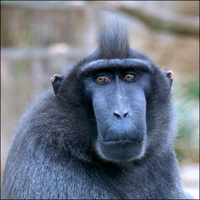
Country/State : Lille, FRANCE
Age : 60
Joined : 2010-04-01
Posts : 21169
 |  Subject: Re: Mathison Museum of Natural History Subject: Re: Mathison Museum of Natural History  Sun Oct 29, 2023 5:01 am Sun Oct 29, 2023 5:01 am | |
| |
|   | | bmathison1972

Country/State : Salt Lake City, UT
Age : 52
Joined : 2010-04-12
Posts : 6710
 |  Subject: Re: Mathison Museum of Natural History Subject: Re: Mathison Museum of Natural History  Sun Oct 29, 2023 6:58 am Sun Oct 29, 2023 6:58 am | |
| Species: Prosopocoilus inclinatus (Motschulsky, 1857) Common name(s): Japanese stag beetle; kuwagatamushiAbout the Figure: Manufacturer: Kaiyodo Series: Capsule Q Museum - Japanese Stag Beetles; Capsule Q Museum - Insects Gather to Sap - Night Feast of Midsummer Years of Production: 2013; 2015 Size/Scale: Body length (including mandibles) of adult approximately 4.5 cm for a scale of 1:1.7 for a major male. Body length (including mandibles) of pupa approximately 7.0 cm, within scale 1:1 for a major male. Frequency of species in toy/figure form (at time of posting): Common Miscellaneous Notes: This is the eight time we've seen P. inclinatus in the Museum. The adult was produced in 2015 for the Insects Gather to Sap - Night Feast of Midsummer collection; it has a small non-obtrusive magnet on the underside. The pupa was produced in 2013 for the Japanese Stag Beetles collection; minimal assembly is required. Both sets are part of Kaiyodo's Capsule Q Museum line. Normally I don't mix figures from different sets in these posts, but since these are the only two figures of this species I have by Kaiyodo I thought I'd showcase them together. About the Animal: Geographic distribution: East Asia (Japan, Taiwan, Korean Peninsula, eastern China) Habitat: Oak forests Diet: Larvae breed in rotting logs of Quercus (oak); adults are attracted to sap flows. IUCN Status (at time of posting): Not Evaluated Miscellaneous Notes: Prosopocoilus inclinatus is an easy species to rear in terraria and is popular in Japan. [You must be registered and logged in to see this image.] |
|   | | Caracal

Country/State : France
Age : 65
Joined : 2018-10-24
Posts : 7252
 | |   | | bmathison1972

Country/State : Salt Lake City, UT
Age : 52
Joined : 2010-04-12
Posts : 6710
 |  Subject: Re: Mathison Museum of Natural History Subject: Re: Mathison Museum of Natural History  Mon Oct 30, 2023 6:39 am Mon Oct 30, 2023 6:39 am | |
| Species: Papilio xuthus Linnaeus, 1767 Common name(s): Asian swallowtail; Chinese yellow swallowtail About the Figure: Manufacturer: Bandai Spirits Series: Life With Insect (Desktop Models; Key Holder); Insects in the World (Desktop Models) Years of Production: 2020, 2021 Size/Scale: Adult figure 12.5 cm wide; if spread like a mounted specimen, the wingspan would be approximately 10.5 cm for a scale of 1.5:1-1.2:1. Body length of larvae approximately 6.0 cm for a scale of 1.5:1-1.2:1 (see below). Frequency of species in toy/figure form (at time of posting): Common Miscellaneous Notes: This is the fourth time we've seen P. xuthus in the Museum. The adult was produced in 2020 as part of the Life With Insect Key Holder collection. It is essentially a photograph of an adult butterfly printed on the back of the acrylic. Normally I don't collect photographs of animals on/in flat acrylic, but I do for butterflies and moths since I display my 'flat' lepidopteran figures in Riker mounts like actual specimens. The larva without the extended osmeterium was produced in 2020 as part of the Life With Insect Desktop Models collection while the larva with the extended osmeterium was produced in 2021 as part of the Insects in the World Desktop Models collection. Bandai Spirits insects are usually advertised as being in 1:1 scale, although usually at the high end of the scale or, as in the case today, slightly larger than 1:1. About the Animal: Geographic distribution: East Asia; introduced to Hawaii Habitat: Forests, gardens, parks, citrus orchards Diet: Larvae feed on plants in the family Rutaceae, including cultivated Citrus; adults are attracted to flowers IUCN Status (at time of posting): Not Evaluated Miscellaneous Notes: Populations of P. xuthus are regulated by a couple parastoid hymenopterans, Trichogramma, an egg parasitoid, and Pteromalus, a pupal parasitoid. The parasitoids normally have shorter life spans and generation times than the butterfly (which is necessary to complete their life cycle while the butterfly is in its respective stages). When the butterfly population reaches a high density, because of a shorter generational turn around of the parasites, intergeneration responses of the parasites are faster than those of the butterflies, resulting in a responding increased growth of the parasites. Overall, this creates an evolutionary stable system (ESS) that helps keep populations of both butterfly and its parasitoids in check. [You must be registered and logged in to see this image.] |
|   | | Caracal

Country/State : France
Age : 65
Joined : 2018-10-24
Posts : 7252
 | |   | | widukind

Country/State : Germany
Age : 48
Joined : 2010-12-30
Posts : 45745
 |  Subject: Re: Mathison Museum of Natural History Subject: Re: Mathison Museum of Natural History  Mon Oct 30, 2023 1:48 pm Mon Oct 30, 2023 1:48 pm | |
| |
|   | | bmathison1972

Country/State : Salt Lake City, UT
Age : 52
Joined : 2010-04-12
Posts : 6710
 |  Subject: Re: Mathison Museum of Natural History Subject: Re: Mathison Museum of Natural History  Tue Oct 31, 2023 5:43 am Tue Oct 31, 2023 5:43 am | |
| Species: Bos taurus Linnaeus, 1758 Common name(s): Ongole cattle About the Figure: Manufacturer: Safari Ltd. Series: Safari Farm Year of Production: 2018 Size/Scale: Height at withers (excluding hump) approximately 7.0 cm for a scale of 1:20-1:21 Frequency of breed in toy/figure form (at time of posting): Unique Miscellaneous Notes: The figure is sculpted as a cow with udders but the hump is probably too well developed for a cow, and looks more like a hump one would expect to find on a bull. About the Animal: Geographic distribution: The breed originated in the Prakasam District of Andhra Pradesh, India; today it is also bred in the United States, Central and South America, Southeast Asia, some Indo-Pacific Islands, and Australia. Habitat: Tropical rainforest, plains, farmland, pasture Diet: Grasses, crops and crop residues, legumes, various fodder trees IUCN Status (at time of posting): Domesticated Miscellaneous Notes: The Ongole is bred for beef, milk, and as a draught animal. It also appears to have some resistance to hoof-and-mouth disease and mad cow disease. The Ongole has served as stock for other breeds around the world, including the Santa Gertrudis and Brahman in the United States and the Nelore in Brazil. [You must be registered and logged in to see this image.] |
|   | | widukind

Country/State : Germany
Age : 48
Joined : 2010-12-30
Posts : 45745
 |  Subject: Re: Mathison Museum of Natural History Subject: Re: Mathison Museum of Natural History  Tue Oct 31, 2023 9:22 am Tue Oct 31, 2023 9:22 am | |
| |
|   | | bmathison1972

Country/State : Salt Lake City, UT
Age : 52
Joined : 2010-04-12
Posts : 6710
 |  Subject: Re: Mathison Museum of Natural History Subject: Re: Mathison Museum of Natural History  Wed Nov 01, 2023 5:44 am Wed Nov 01, 2023 5:44 am | |
| Species: Hymenopus coronatus (Olivier, 1792) Common name(s): orchid mantis About the Figure: Manufacturer: Bandai Series: Diversity of Life on Earth - Mantids Vol. 3 Year of Production: 2022 Size/Scale: Legspan 11.0 cm. Body length (excluding appendages) approximately 9.0 cm. Scale difficult to calculate, as it's hard to find metrics for the nymphal stages, but assuming the sculpt represents an L5-L7 nymph (see below), the scale could be anywhere from 3:1-2:1. Frequency of species in toy/figure form (at time of posting): Uncommon to rare Miscellaneous Notes: This is the fourth time we've seen H. coronatus in the Museum. Being a figure in the Diversity of Life on Earth line, the model is large, requires assembly, and the final product has multiple points of articulation. There was also a pink version of this nymph in the set, but I opted only for the white version. Hope the pic turned out OK; photographing white figures can be challenging at times. About the Animal: Geographic distribution: East and Southeast Asia, from western India to Thailand, Indonesia, and the Philippines Habitat: Rainforests Diet: Flying insects IUCN Status (at time of posting): Not Evaluated Miscellaneous Notes: After hatching, H. coronatus has eight developmental stages, seven nymphal stages (L1-L7) and the adult. [You must be registered and logged in to see this image.] |
|   | | widukind

Country/State : Germany
Age : 48
Joined : 2010-12-30
Posts : 45745
 |  Subject: Re: Mathison Museum of Natural History Subject: Re: Mathison Museum of Natural History  Wed Nov 01, 2023 11:23 am Wed Nov 01, 2023 11:23 am | |
| |
|   | | lucky luke
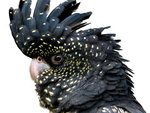
Country/State : FRANCE Saint-Louis
Age : 62
Joined : 2010-07-17
Posts : 6296
 |  Subject: Re: Mathison Museum of Natural History Subject: Re: Mathison Museum of Natural History  Wed Nov 01, 2023 11:35 am Wed Nov 01, 2023 11:35 am | |
| |
|   | | Caracal

Country/State : France
Age : 65
Joined : 2018-10-24
Posts : 7252
 |  Subject: Re: Mathison Museum of Natural History Subject: Re: Mathison Museum of Natural History  Wed Nov 01, 2023 1:01 pm Wed Nov 01, 2023 1:01 pm | |
| |
|   | | Sponsored content
 |  Subject: Re: Mathison Museum of Natural History Subject: Re: Mathison Museum of Natural History  | |
| |
|   | | | | Mathison Museum of Natural History |  |
|
Similar topics |  |
|
| | Permissions in this forum: | You cannot reply to topics in this forum
| |
| |
| |
